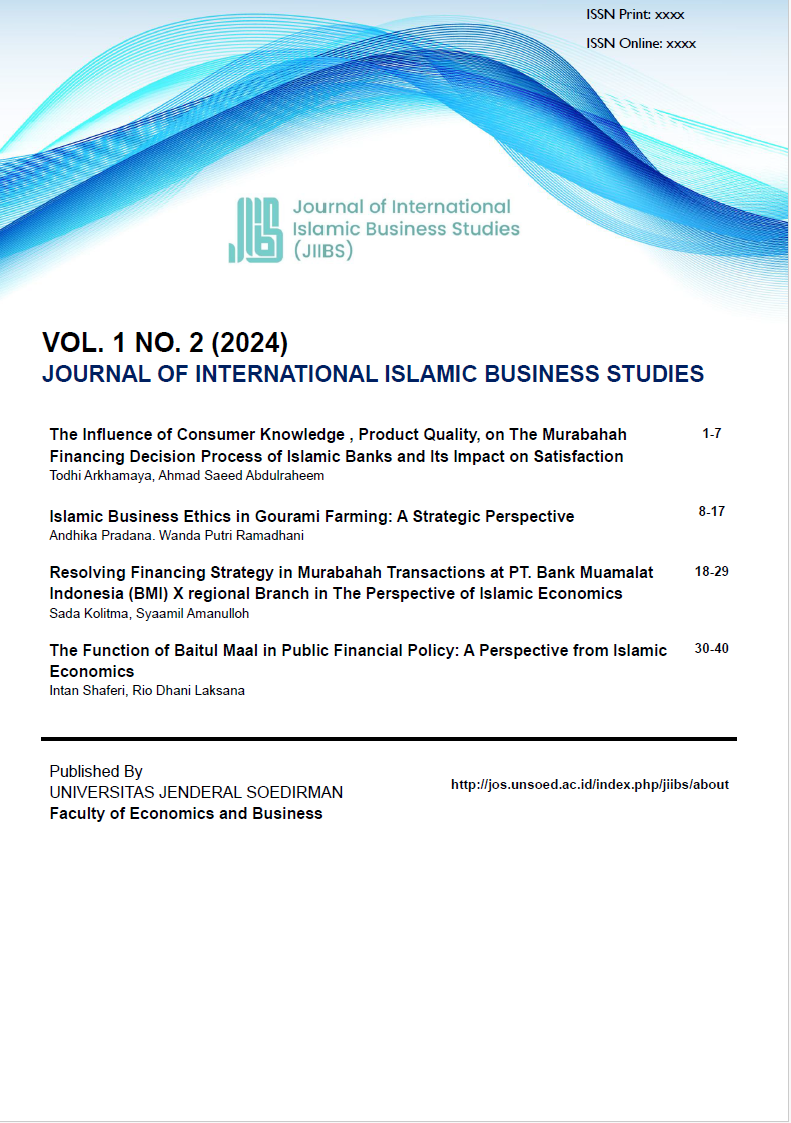The Function of Baitul Maal in Public Financial Policy: A Perspective from Islamic Economics
Abstract
Conventional economic objectives tend to focus on material gains, often neglecting "immaterial" aspects. All analyses in this framework are directed solely at measuring outcomes from a worldly perspective. In contrast, Islamic economics adopts a more holistic approach, addressing both material and spiritual dimensions, ensuring balance for life in this world and the hereafter. This research explores the role of Baitul Maal in public finance, examining the principles associated with finance and the evolution of Islamic finance from the past to the present. The findings reveal that Baitul Maal, established by the Prophet in Medina, serves as a key financial institution. It manages assets received by the state and distributes them to eligible Muslims, functioning as both a repository and a disbursement mechanism for state revenues. Baitul Maal acts as a hub for storing incoming assets and managing outgoing resources. Key instruments utilized for public financing under the role of Baitul Maal include zakat, state assets and enterprises, kharaj (land tax), jizyah (poll tax), and waqf (endowments).





